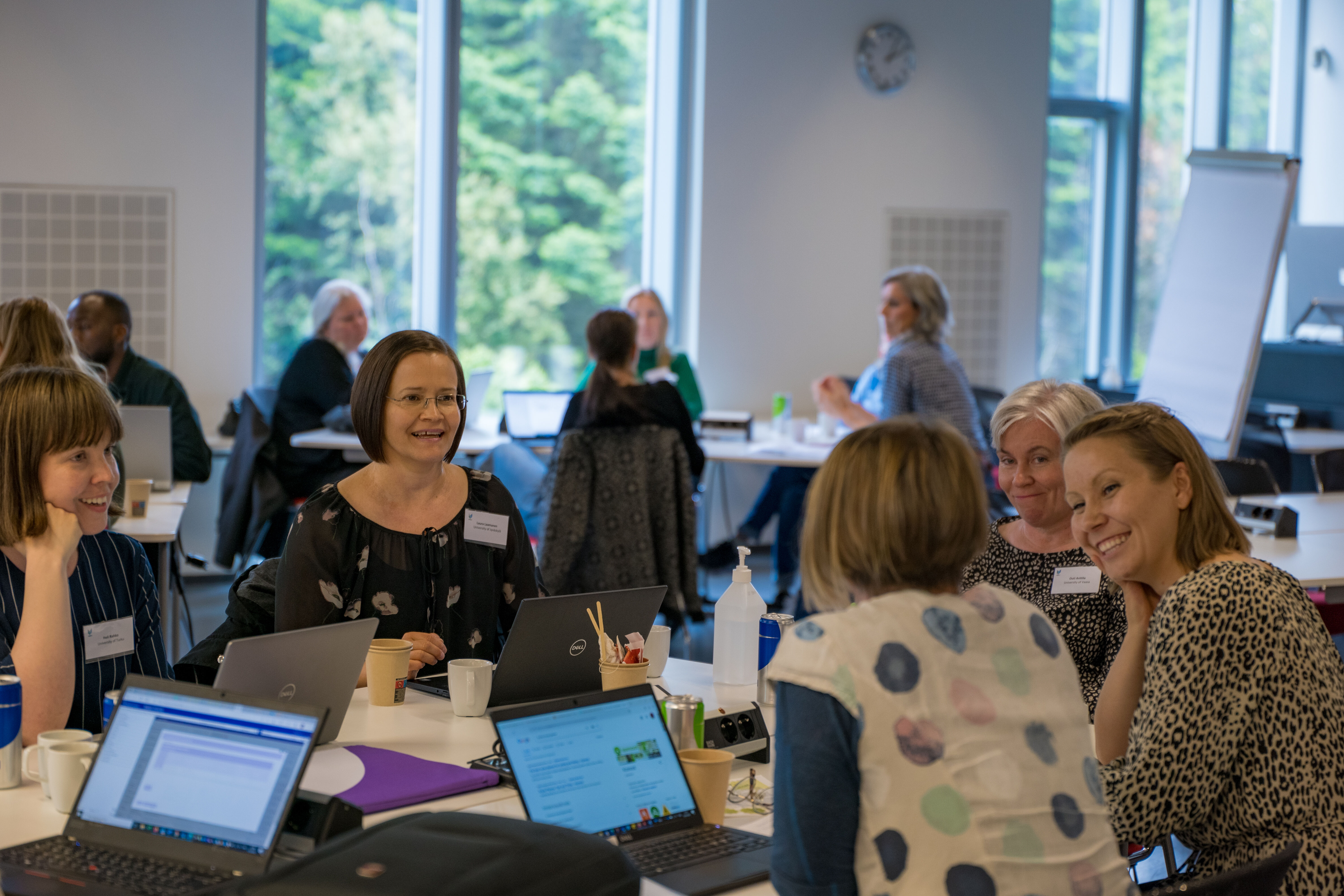Green and sustainable lifestyle among exchange students
Nordlys annual meeting held at Reykjavik University
Nordlys, one of RU's Nordic partner networks within Nordplus, met at an annual meeting at Reykjavík University, the first on-site meeting for two years. The participants are working with international mobility within Nordic universities. 27 were present and 10 online. The theme of the meeting was a green and sustainable lifestyle during exchange studies in the host country. RU's International Office organized the workshop and got several people to give presentations.
Lectures were delivered by: Eiríkur Örn Þorsteinsson, Sorpa's educational and communication expert, who gave a lecture titled: Consuming Less - Consuming Better. Heli Rahko from the University of Turku announced the results of a study that was conducted among students that showed that students really want to travel in a sustainable way when going on an exchange abroad, but there is a lack of comprehensive information on where they can learn about travel options, carbon emissions and better mapping of ecological lifestyles.

Dagmar Óladóttir, President of the Student Council's Transportation and Environmental Affairs Committee of SHÍ, gave a presentation on the role of the committee and her own experience of eco-friendly exchange studies abroad. Dr. Snjólaug Ólafsdóttir talked about sustainability and how we need to look at our behavior in the big picture, not only when it comes to green transport but also lifestyle in general and especially in connection with consumption.
Finally, guests received a talk from the company GreenBytes, which specializes in helping restaurants reduce food waste by using artificial intelligence that predicts upcoming sales and therefore provides information on how much to buy.
Lastly, there was a workshop led by Árný Lára Sigurðardóttir, project manager at the International Division of the University of Iceland, but UI is also a Nordlys network partner. Each country came up with proposals on how to gather information on eco-friendly options and make them accessible to exchange students who are coming into the relevant country. The aim is to influence the attitudes and behavior of students who come on an exchange. The results from that workshop will be used as a source in making information material for incoming students.

